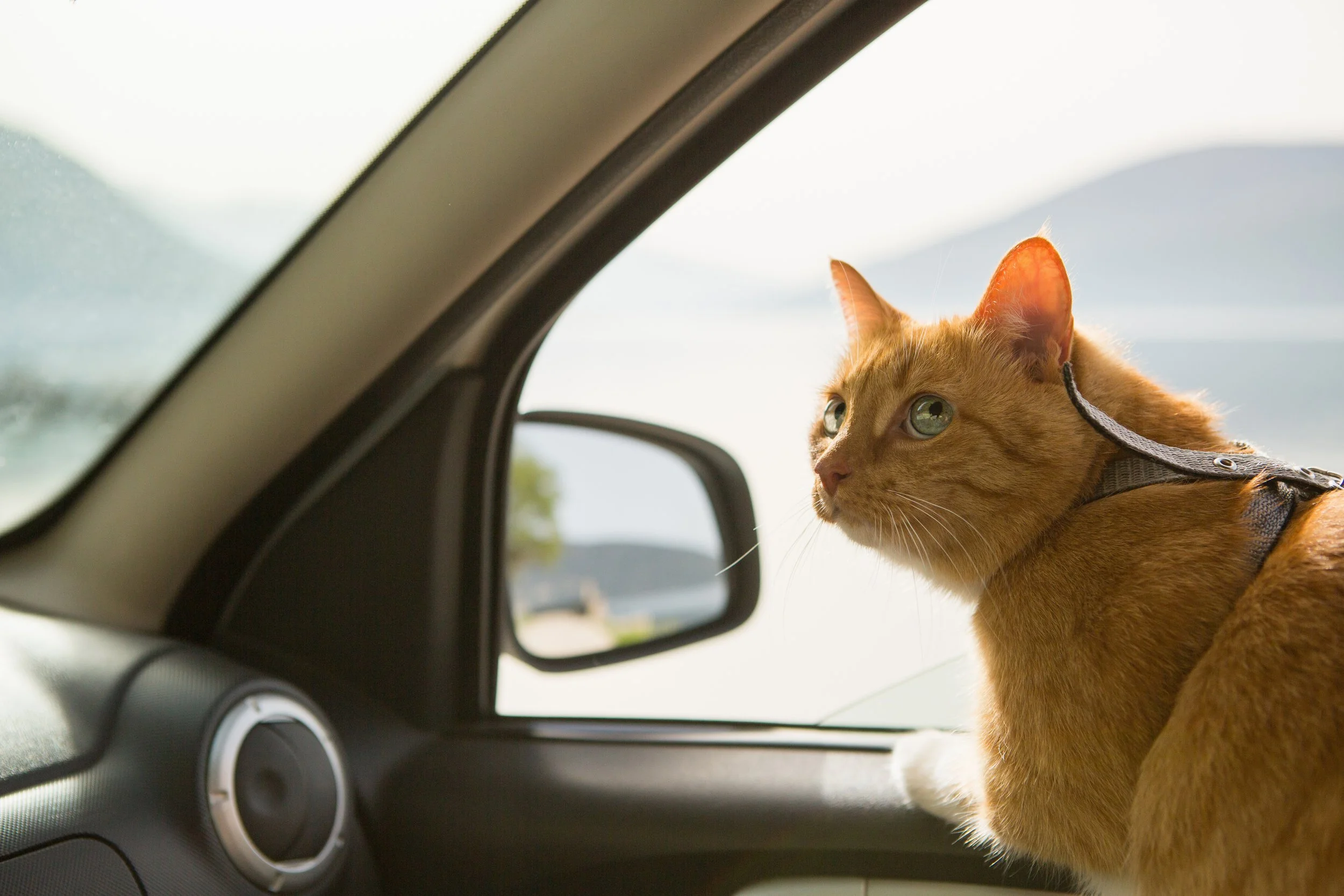Traveling with pets can be a rewarding and delightful experience filled with treats, cuddles, and memorable adventures. Yet, for the unprepared, it can also bring challenges. In this guide, we provide essential information on how to travel safely with your pets, ensuring that you and your furry friends have an enjoyable journey.
Understanding The Needs of Your Pet
Before embarking on any travels with your pet, it's crucial to understand their specific needs fully. Like us humans, pets have unique personalities, preferences, and requirements that need to be recognized and attended to. Understanding your pet's needs goes a long way in ensuring their comfort and safety during travels.
Different Types of Pets and Their Unique Needs
Dog, cat, bird, or hamster – each type of pet has different travel requirements. For instance, dogs may require regular exercise stops on a long journey, while cats prefer a quiet, enclosed space. Birds may need a secure cage, and the temperature should be monitored carefully. Research your pet's specific needs before traveling.
Influence of Pet's Age and Health Status on Travel
Your pet's age and health status significantly influence their ability to travel. Puppies and kittens, as well as elderly pets, may find traveling more stressful. Similarly, pets with health issues might require special care or not be suitable for travel. Always consult your vet if you're unsure about your pet's ability to travel.
Pre-travel Preparation
Preparation is critical to ensuring a safe and smooth journey with your pet. This includes veterinary checks, training, and packing the essentials.
Visiting the Vet for a Health Check-up
Visit your vet for a thorough health check-up before you travel. Make sure your pet is up-to-date with their vaccinations, especially if you're traveling internationally. Ask your vet about preventive treatments for fleas, ticks, and worms, and discuss any concerns about your pet’s health while traveling.
Training Your Pet for Travel
Training is a critical aspect of pre-travel preparation. If your pet is not used to traveling, start with short trips to help them adjust. Use positive reinforcement to help your pet associate travel with pleasant experiences. For dogs, consider crate training, as crates provide a safe and secure space during travel.
Packing Checklist for Your Pet
Packing for your pet is just as important as packing for yourself. The basics include:
A sturdy carrier or crate
Food and water, and bowls for them
Leash and collar with a tag containing your contact information
Familiar items to comfort your pet, like favorite toys or bedding
Waste bags for dogs or a portable litter box for cats
First-aid kit, including any specific medication your pet might need
Understanding your pet's needs and preparing thoroughly for your journey ensures that your pet is safe, comfortable, and ready for the adventure ahead. Whether you're embarking on a road trip or catching a flight, your well-prepared pet will be ready to accompany you every step.
Choosing the Right Mode of Transportation
When traveling with your pets, your transportation mode can significantly impact their comfort and safety.
Traveling by Car
Car travel is often the most convenient and stress-free option, especially for shorter trips. It gives you control over the environment, allows for flexibility, and usually, pets are pretty comfortable in a car. Ensure your pet is safely secured using a crate or a car harness, and never leave them unattended in a parked vehicle. Plan for frequent breaks for bathroom, meals, and stretch their legs.
Traveling by Air
Air travel can be more complex because different airlines have different pet policies. It's essential to research your airline's pet policy thoroughly. Remember, pets can get anxious during air travel, so talk to your vet about ways to keep your pet calm, such as using a familiar carrier, comfort items, or potential sedatives.
Other Modes of Transport
When considering other modes of transport, such as buses, trains, or boats, always check their policies regarding pets. Some may allow pets in carriers, while others may prohibit them altogether.
Accommodation Considerations
The next step to plan for is accommodation. Ensuring that your destination is pet-friendly is crucial to having a pleasant and stress-free trip.
Researching Pet-Friendly Accommodations
Always confirm the pet policy of your accommodation before booking. Researching can help you find pet-friendly hotels around the world. Consider extra costs, size restrictions, and the number of pets allowed.
Preparing Your Pet for the New Environment
Upon arrival, allow your pet to adjust to the new environment slowly. Bring familiar items like their favorite blanket or toys to help them feel at home. Remember to keep your pet's feeding and exercise schedule consistent to provide a sense of normalcy.
Keeping Your Pet Comfortable During the Journey
Travel can be stressful for pets. Here are some tips to help keep your pet comfortable and calm during the journey.
Feeding and Hydration Tips
Feed your pet a light meal three to four hours before departure time to prevent motion sickness. Always have fresh water for your pet and ensure they're well-hydrated throughout the journey.
Exercise and Rest Breaks
Regular exercise and rest breaks are essential, particularly for dogs. Allow your pet to stretch and relieve themselves regularly. This will make them more comfortable and help them burn off nervous energy.
Keeping Your Pet Entertained
Travel can be dull for pets. Remember to pack their favorite toys and treats. Interactive toys that allow for mental stimulation are beneficial.
Dealing with Emergencies
Even with the most meticulous planning, emergencies can occur. Being prepared for such situations can ensure the safety and health of your pet.
Basic Pet First Aid
Knowing basic pet first aid is essential for all pet owners, not just for traveling. Assemble a pet first aid kit, including bandages, tweezers, a digital thermometer, a muzzle, and any specific medication your pet might need. You can find many online resources like this one that offers comprehensive guides to pet first aid.
Locating Vet Services at Your Destination
Before you travel, identify the location and contact information of vets and emergency pet hospitals near your destination. This readily available information can be a lifesaver in an emergency.
Post-Travel Care
Once your travel is over, your responsibility towards your pet isn't. Here's what you need to know about post-travel care.
Post-Travel Health Check-up
Upon returning, consider a check-up with your vet, especially if your travels were to a location with a different climate or potential exposure to unfamiliar flora and fauna. This allows for early detection and treatment of any potential issues.
Helping Your Pet Adjust After Travel
Just like humans, pets can experience post-travel fatigue. Allow them time to adjust back to their usual routine. Watch for behavior or eating habits changes, which could indicate stress or illness.
Safe and Memorable Travels with Your Pet
Traveling with your pet is an exciting adventure filled with countless memories. But it's essential to remember that it's not just about having fun. It's about ensuring your pet is safe, comfortable, and happy during and after the journey.
Careful planning, understanding your pet's unique needs, preparing appropriately, choosing the right transportation and accommodation, being ready for emergencies, and providing diligent post-travel care are all part of a successful journey with your pet.
But what if you need professional help to ensure your pet's health and safety? That's where Animal Care Clinic comes in. As the most trusted veterinarian in Junction City, KS, we're committed to providing state-of-the-art care for your best friend. Our compassionate team, led by Dr. Mark Stenstrom, DVM, has served Junction City's pets with quality and compassion since 1975.
Ultimately, the most important thing is to enjoy the journey and the destination with your furry best friend. After all, they're not just pets; they're family. Every trip you take together strengthens the bond you share. So here's to many more safe and happy travels together! And remember, if you need a vet who truly cares, Animal Care Clinic should be your go-to.

